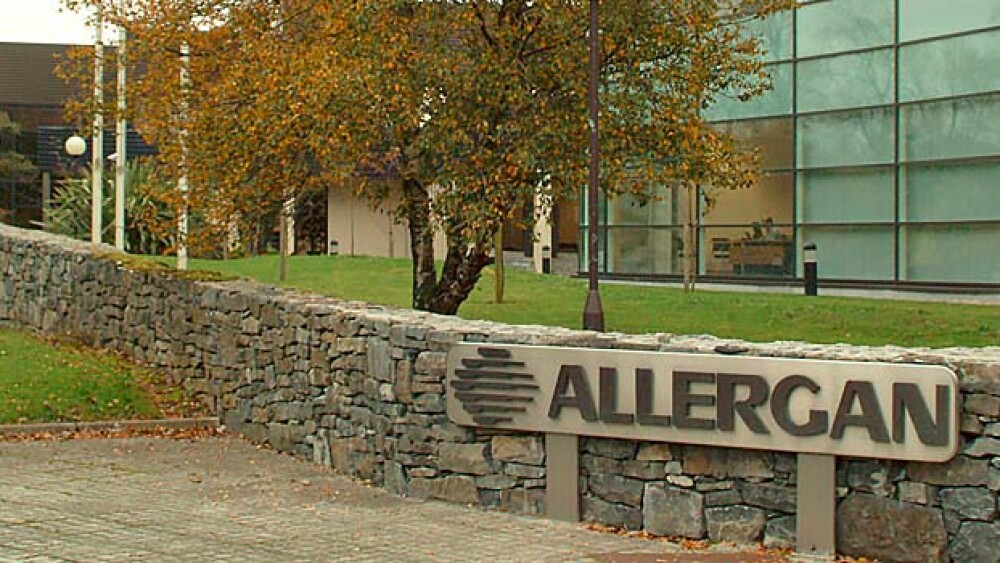Allergan is suing Pfizer over morphine-based opioid drugs, Kadian, that Allergan acquired in December 2008. Read more if you wish to know more about this matter.
Here’s why Allergan sued Pfizer over opioid drugs.
Dublin-based Allergan is suing New York-based Pfizer over a morphine-based opioid, Kadian, that Allergan acquired in December 2008. The drug was originally owned by King Pharmaceuticals, which was subsequently acquired by Pfizer in 2010.
Allergan alleges that Pfizer, or King, improperly marketed Kadian in the years prior to its acquisition. Allergan was known as Actavis when it bought Kadian.
The lawsuit was filed in Cleveland federal court on August 1. The suit is in the wake of the opioid crisis. The National Institute on Drug Abuse, part of the National Institutes of Health (NIH), indicates that more than 115 people die from opioid drugs overdoses in the U.S. daily. It also claims that 21 to 29 percent of patients who are prescribed opioids for chronic pain misuse them, with 8 to 12 percent developing an opioid use disorder. From July 2016 through September 2017, opioid overdoses increased 30 percent in 52 areas in 45 states.
Although the Trump administration has at least paid lip service to do something about the opioid drugs epidemic, more efforts seem to be occurring within the industry or through the courts. In September 2017, the attorneys general of 41 states formed a coalition to look at the role of big pharma in the epidemic, issuing subpoenas for information to Endo International, Janssen Pharmaceuticals (a Johnson & Johnson company), Teva Pharmaceutical, Allergan and Purdue Pharma. They are also demanding documents from pharma distributors, such as AmerisourceBergen, Cardinal Health and McKesson.
More About the Opioid Drugs Case
At a press conference at the time, New York Attorney General Eric Schneiderman said, “Our subpoenas and letters seek to uncover whether or not there was deception involved, if manufacturers misled doctors and patients about the efficacy and addictive power of these drugs. We will examine their marketing practices both to the medical community and the public.”
Some of the litigation against the drug companies has been consolidated before U.S. District Judge Dan Polster in Cleveland. Bloomberg notes, “Opioid makers and drug wholesalers are accused of creating a public-health crisis through their marketing of the painkillers. The companies recognize there’s an opioid drugs crisis, but have said they aren’t responsible and litigation is the wrong way to address the issue.”
The Allergan lawsuit perhaps suggests that in a feeding frenzy where many of the big players in the industry, such as Purdue Pharma (manufacturer of OxyContin) and McKesson might end up paying significant financial penalties, the industry is perfectly capable of turning on itself.
Allergan argues that Actavis agreed to take on only some of the liabilities, and the original company, King Pharmaceuticals “agreed to indemnify any liabilities involving Kadian sales and marketing before 2009,” Bloomberg reports. And per the lawsuit, Allergan and Pfizer inherited the obligations.
“But now that more than a thousand lawsuits seek to impose liability for that very marketing and sale, Pfizer has rejected any responsibility to indemnify Allergan,” the lawsuit states.
The damages in the lawsuit include the costs and legal fees Allergan has spent defending the lawsuits and civil investigations based on marketing and sales of opioid drugs, in this case, Kadian before 2009.
On the surface, this seems to be a peculiar lawsuit. Allergan is suing Pfizer for inappropriate marketing and sales efforts for a drug it never sold, for marketing efforts a company made at least a year before it bought the company. And further, for a drug that Allergan acquired two years before Pfizer bought the company. It suggests that Pfizer is legally obligated to pay for any of King’s legal issues prior to the acquisition.
Meanwhile, the merged lawsuits before Polster continue. The two major legal arguments in those cases are that beginning in the mid-1990s, drug companies practiced deceptive marketing campaigns underplaying the risks of opioid drugs, and that opioid distributors supplied excess amounts of these medications even though they were being misused.





